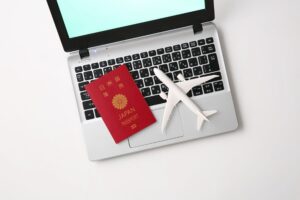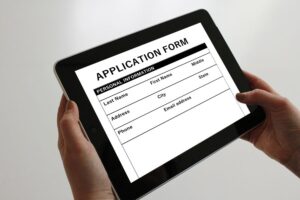A few years ago, my cousin boldly decided to begin migrating to Norway from Nigeria to start his new life. I remember the mix of excitement and nervousness in his voice as he shared his plans.
He had always dreamed of living in a country known for its stunning landscapes, high quality of life, and endless opportunities. But as reality set in, so did the questions.
Migrating to Norway from Nigeria requires careful planning, a clear understanding of visa options, and strict compliance with immigration regulations.
Whether you’re moving for work, study, family reunification, or other reasons, securing the right visa is the first and most crucial step.
The process can be complex, involving various requirements such as proof of financial stability, documentation, and, in some cases, interviews.
Being well-prepared from the start significantly improves your chances of a smooth transition.
This guide walks you through every step and provides detailed insights into visa options, application processes, and helps you avoid common pitfalls that thousands face when migrating to Norway from Nigeria
Following the right steps and staying informed can increase your chances of approval and ensure a seamless relocation experience.
1. Identify the Right Visa for Your Purpose

Norway offers different visa categories depending on your reason for relocation.
Some common visa options include work visas for skilled professionals, student visas for those pursuing education, family reunification visas for joining relatives, entrepreneur visas for business owners, and asylum or humanitarian visas for protection seekers.
Choosing the right visa ensures a smoother application process and better chances of approval.
Each visa category has specific eligibility criteria and document requirements.
It’s essential to research thoroughly, visit the Norwegian Directorate of Immigration (UDI) website, and ensure you meet all conditions before applying.
Incorrect applications can lead to delays or rejection, so careful preparation is crucial.
2. Check the Requirements for a Work Visa

If you plan to work in Norway, you must meet specific requirements, including securing a valid job offer from a Norwegian employer, ensuring your salary meets the minimum threshold, and proving you have the necessary qualifications and experience.
The employer often plays a role in sponsoring your application and providing necessary documentation.
While Norway has strict visa rules, other countries with easier visa requirements may offer more straightforward work permit processes for skilled professionals.
The UDI regularly updates work visa requirements, so check their website for the latest details.
Missing any required documents or failing to meet financial conditions can result in visa denial. A strong application with all necessary paperwork increases your chances of approval.
3. Learn Basic Norwegian Language Skills

Although many Norwegians speak English, learning basic Norwegian can help you integrate faster.
Some visa categories, such as permanent residency, require language proficiency.
Consider enrolling in language courses before or after arrival – this is one of the most effective ways to adjust to a new country as an immigrant.
Understanding the local language improves job opportunities, social interactions, and overall adaptability in Norway.
4. Understand the Family Reunification Process

You may qualify for family reunification if you have close family members legally residing in Norway.
To support your application, you must provide proof of relationship, such as marriage or birth certificates, and your family member in Norway must meet specific income and housing requirements.
Processing time for family reunification visas can take months, so early application is crucial.
Ensure you provide accurate documents and meet all conditions to avoid delays. Consulting an immigration lawyer or checking with UDI can help clarify specific requirements for your case.
If you often feel overwhelmed by the travel process, exploring effective strategies to overcome travel anxiety can help ease your worries and make your journey smoother.
5. Consider the Seasonal Work Visa for Short-Term Jobs

Norway offers seasonal work visas for those seeking temporary jobs, particularly in agriculture, fishing, and tourism.
To qualify, you need a valid job contract from a Norwegian employer, proof of accommodation, and financial means to support yourself.
This visa is typically valid for up to six months and may not lead to long-term residency.
If you’re considering extending your stay, you may need to explore other visa options, such as skilled worker permits or further educational opportunities.
Hence, knowing how to get a job in another country before moving is crucial.
6. Explore the Entrepreneur Visa for Business Owners

If you plan to start a business in Norway, you can apply for an entrepreneur visa.
Requirements include a well-structured business plan, proof of sufficient financial investment, and relevant skills or experience in your chosen industry.
The business must contribute to Norway’s economy.
Entrepreneurs must register their business with Norwegian authorities and comply with local regulations.
Norway supports innovation and business growth, but ensuring your business aligns with the country’s economic needs will improve your visa approval chances.
7. Meet the Financial Requirements

Most visas require proof of financial stability.
Norwegian authorities want to ensure that you can support yourself during your stay, whether you’re applying for a student visa, work visa, or family reunification.
The financial requirement varies depending on the visa type, it generally includes having enough funds for accommodation, food, and other essentials.
For students, this means proving that you have sufficient funds to cover tuition fees and living expenses for at least a year, one of the key steps to take before going abroad for studies.
For work visas, your employer’s salary offer should meet the Norwegian minimum wage threshold.
Family reunification applicants may need to provide proof of the Norwegian resident’s income and housing conditions. Ensuring you meet these requirements prevents delays or rejections.
8. Submit an Accurate and Complete Application

Norwegian immigration authorities are strict about application accuracy. Any missing documents, errors, or inconsistencies can lead to delays or outright rejection.
Before submission, double-check that all necessary forms are completed correctly and that supporting documents, such as passports, proof of funds, and letters of intent, are included.
Inaccuracies, such as incorrect spellings, mismatched dates, or expired documents, can cause complications.
It’s always best to review the requirements on the UDI website and, if necessary, seek assistance from a professional or legal expert.
A complete and well-prepared application increases your chances of approval.
9. Book an Appointment at the Norwegian Embassy

Once your application is complete, the next step is to book an appointment at the Norwegian embassy or visa application centre in Nigeria.
This appointment is crucial because it is when you submit biometric data, including fingerprints and photographs, and present original documents for verification.
Since embassy slots can fill up quickly, it’s advisable to book an appointment as soon as possible after completing your application.
Bring all required documents in their original form, along with copies, to avoid any complications.
Failure to attend the appointment or provide the correct documents may result in delays or rejection.
10. Prepare for the Visa Interview

Some applicants may be required to attend a visa interview as part of the process.
The interview determines whether your plans for migrating to Norway from Nigeria align with immigration requirements
If selected, you must be prepared to answer questions about your purpose for migrating, financial stability, and plans.
The interview helps assess your eligibility and verify the information in your application.
During the interview, remain confident and provide clear, honest answers.
Ensure that your responses align with the information in your application, as inconsistencies can raise red flags.
Preparing in advance by researching potential questions and practising your responses can improve your chances of success.
11. Monitor Your Application Status

Visa processing times vary, depending on the type of visa and workload at the embassy.
After submitting your application, you can track its progress on the UDI website.
This feature allows you to stay informed about your application status and estimated processing time.
If your application is taking longer than expected, you can reach out to the embassy or visa application centre for updates.
Many applicants also consider factors like how long the relocation process takes to ensure they have ample time for preparation, from visa approval to settling in Norway.
However, avoid unnecessary inquiries, as they may not be able to speed up the process. Patience is key while waiting for a decision.
12. Understand Your Rights and Responsibilities

Once your visa is approved, it’s important to familiarise yourself with the terms and conditions associated with it as someone successfully migrating to Norway from Nigeria.
Different visas have different restrictions, such as limitations on work hours for students or required renewal processes for temporary permits.
Additionally, some visa categories require registration with Norwegian authorities upon arrival.
Failing to comply with visa conditions can lead to penalties or even deportation.
Staying informed and adhering to immigration laws ensures a smooth transition and legal stay in Norway.
Read also: 13 Easiest Countries to Get a Visa From Nigeria
13. Gather Travel and Settlement Documents

Before travelling, gather all necessary documents, including your approved visa, passport, and any additional paperwork required for your stay.
Border officials may request to see proof of accommodation, financial stability, and travel insurance upon arrival.
Having all necessary documents in order will prevent last-minute issues at the airport.
However, travel plans don’t always go as expected, and you miss your flight. Here are 6 things to do to handle the situation effectively and avoid unnecessary stress.
It’s also a good idea to carry copies of important documents and keep electronic versions stored securely online for easy access if needed.
14. Plan for Healthcare and Insurance

Norway has a strong healthcare system, and depending on your visa type, you may be eligible for public healthcare.
However, temporary visa holders, such as students and seasonal workers, are often required to have private health insurance before arriving.
Health insurance ensures that you have coverage in case of emergencies, reducing financial strain in medical situations.
Research the best insurance options available and make sure you comply with Norwegian health regulations to avoid complications.
15. Apply for a Study Visa if Pursuing Education

To study in Norway, you must secure admission into a recognised Norwegian university and provide proof of financial stability to cover tuition and living expenses.
Health insurance is also mandatory, and you may need a detailed study plan to demonstrate your academic intentions.
A student visa allows part-time work to help manage expenses.
However, you must ensure that your studies remain your primary focus.
Adhering to the visa conditions and maintaining good academic standing will help you qualify for future extensions or work opportunities in Norway.
Read also – Easiest Country to Get PR After Study
Closing Remark
Migrating to Norway from Nigeria is a significant step that comes with both challenges and opportunities.
With the right information and preparation, you can navigate the process smoothly and set yourself up for success.
From securing the right visa to understanding the cost of living, adapting to cultural differences, and building a support network, each step you take brings you closer to a fulfilling life in your new home.
It’s important to approach this journey with patience and an open mind.
There may be moments of uncertainty, but every milestone, whether it’s securing a job, learning Norwegian, or making your first local friend, is a step forward.
Keep pushing, stay resilient, and embrace the adventure.
I hope this guide has given you practical insights to make your transition easier.
If you have any thoughts, questions, or personal experiences to share, feel free to drop them in the comments. I’d love to hear from you!